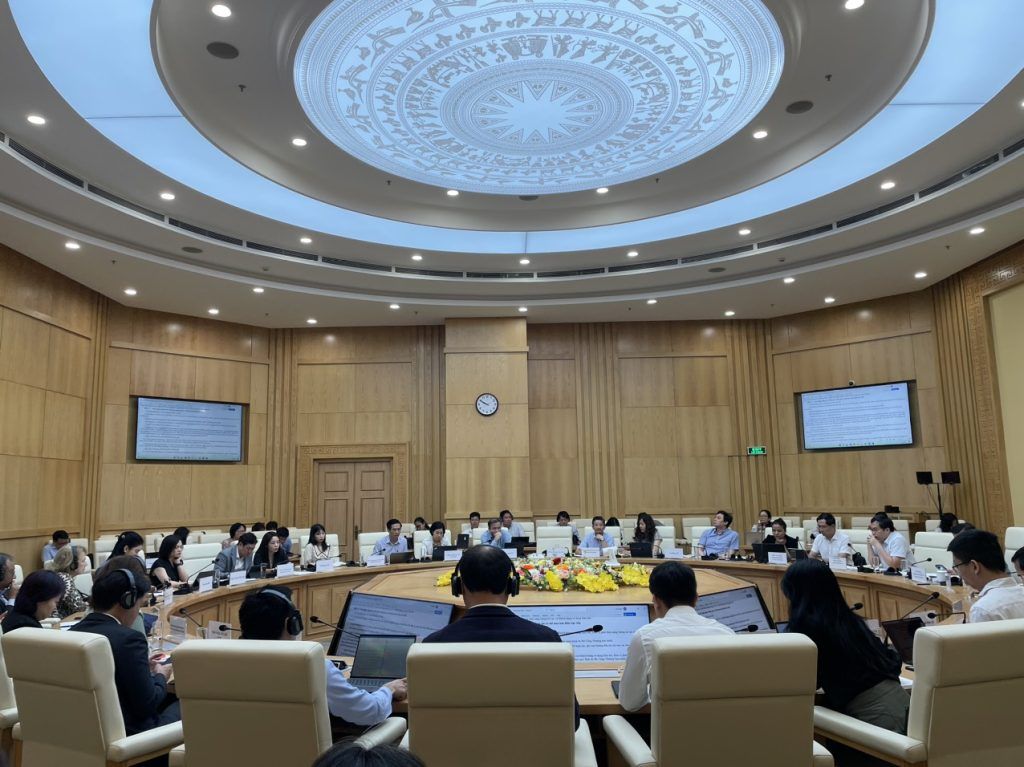[CORPORATE PARTNER] BASF launches game-changing heat and light stabilizer Tinuvin® NOR® 211 AR for sustainable farming practices
Read more

On 23 May, at a consultation meeting organised by the Electricity Regulatory Authority of Vietnam under the Ministry of Industry and Trade (MOIT), EuroCham representatives engaged in discussions surrounding the draft Direct Power Purchase Agreement (DPPA) framework. The meeting brought together a diverse group of stakeholders, including government officials, international chambers of commerce, embassies, development agencies, and leading enterprises in the energy sector.
Representing EuroCham at the event were Vice-Chair Minh Nguyen, Jacques-Etienne Michel from Equinor, and Van Nguyen, Head of the Hanoi Office cum External Relations Manager.
Meeting Highlights:
EuroCham’s Vice-Chair, Minh Nguyen, provided detailed feedback on several critical issues:
– Grid Availability and Capacity Risks: Addressing concerns about the ability of the current grid to handle additional load.
– Three-Party Contract: Clarifying the roles and responsibilities of involved parties.
– Battery Energy Storage System (BESS): Advocating for the inclusion and regulation of energy storage solutions.
– Rooftop Solar (RTS): Discussing the potential and regulatory needs for rooftop solar installations.
– Industrial Zone Developer Involvement: Considering the impact and participation of industrial zone developers.
– Definition of Large Consumers:Establishing clear criteria for who qualifies as a large consumer.
– Types of Renewable Energy Eligible for DPPA: Expanding the range of renewable energy sources that can participate in the DPPA.
MOIT representatives received the feedback positively and will review the suggestions into future drafts.

Next Steps:
Deputy Minister of MOIT Nguyen Sinh Nhat Tan outlined their plan to conduct further research on the policy impacts, focusing on three key areas:
See all
